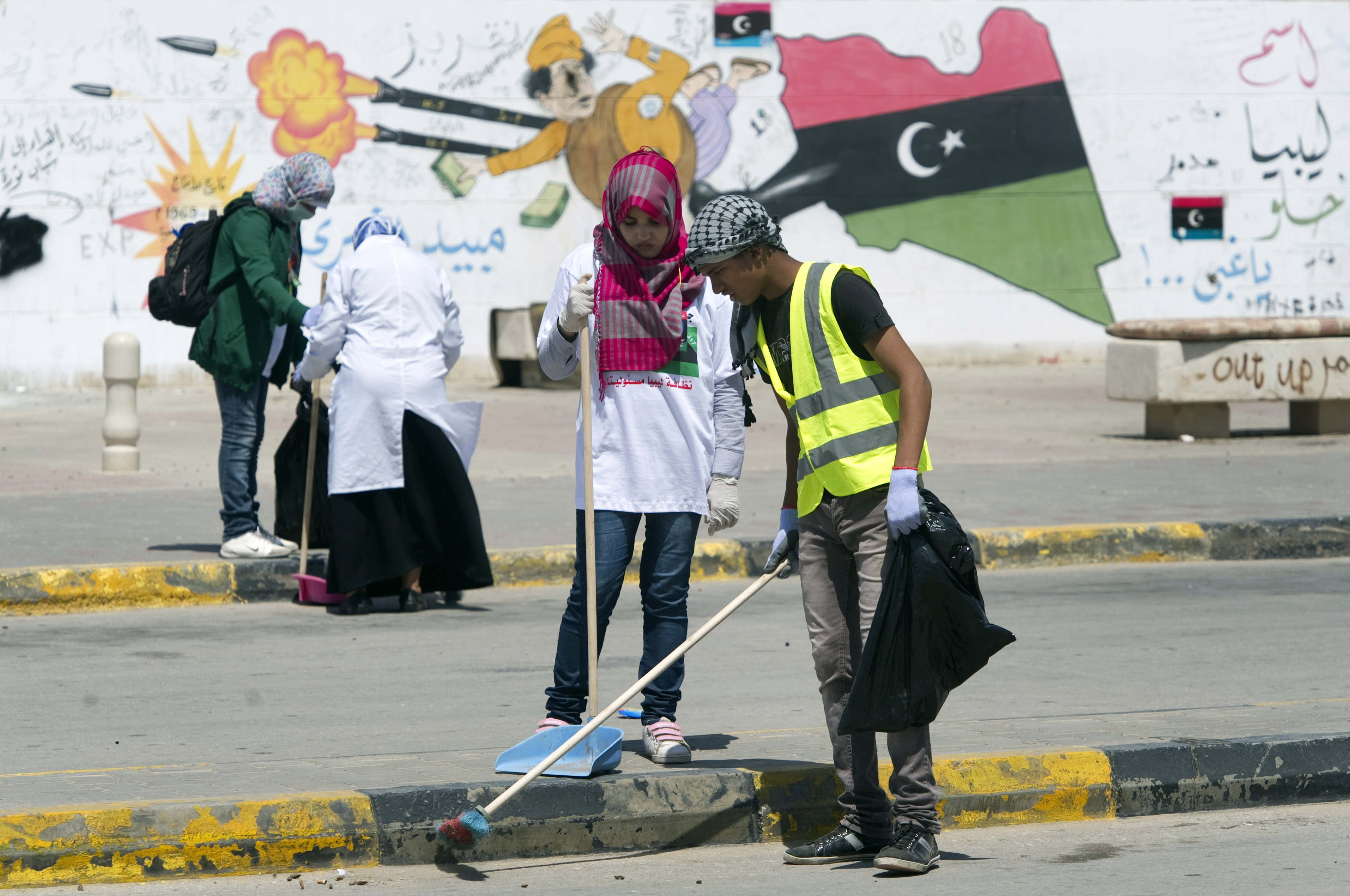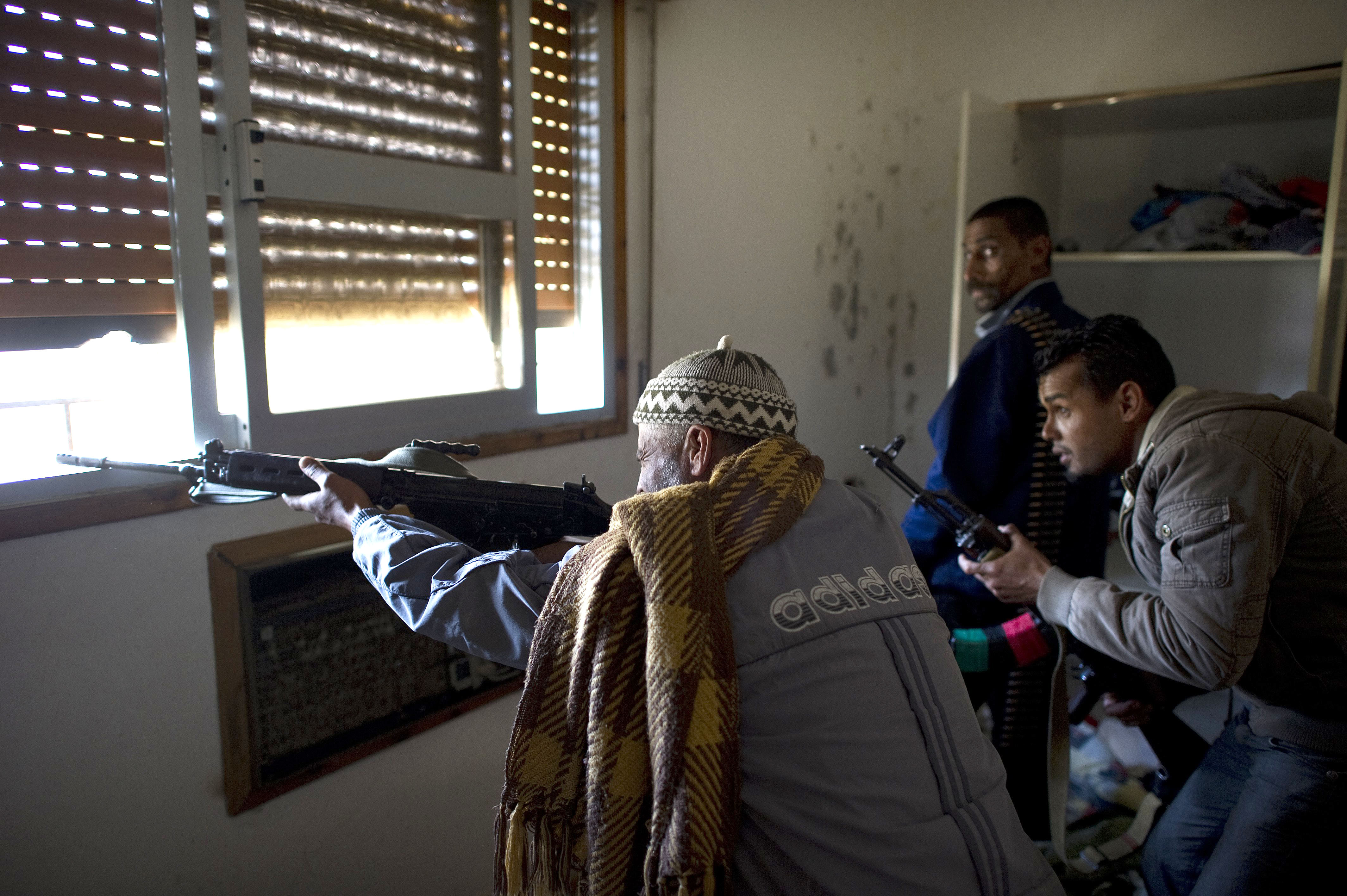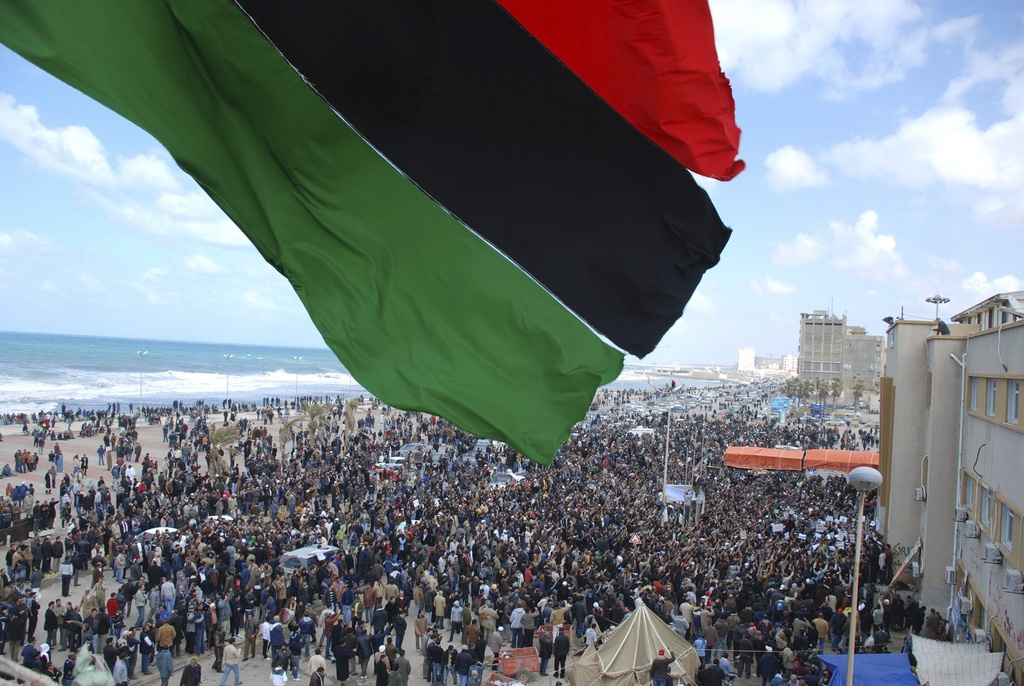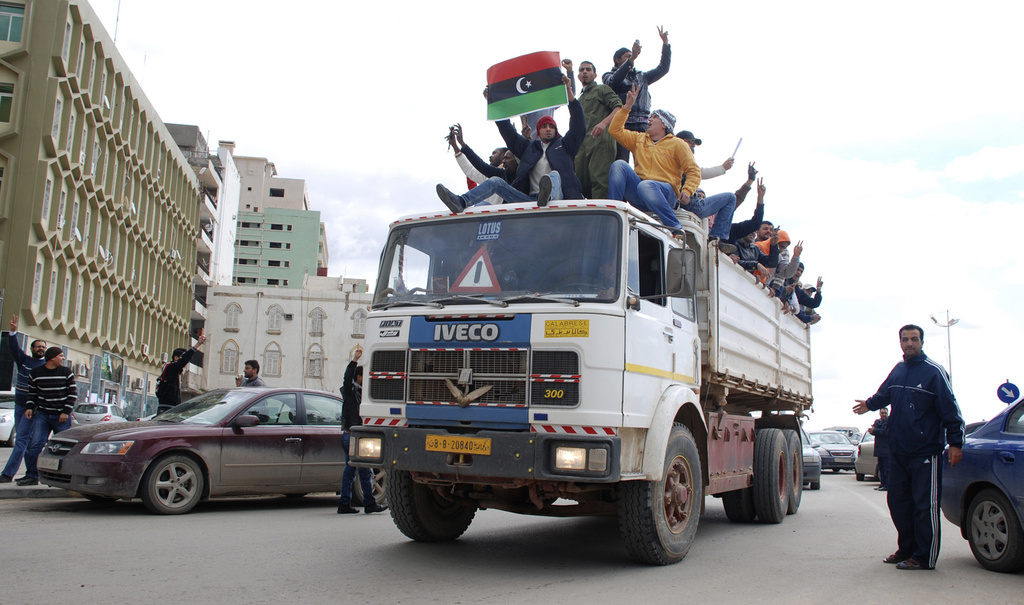Optimism returns to Libya’s second city

The eastern Libyan city of Benghazi first grabbed the headlines about four months ago as the focus of an uprising against the regime of Moammar Gaddafi.
Benghazi is now the seat of a Transitional National Council, which is preparing to take over the government of the country when the Gaddafi regime falls – a scenario that the international community regards as more and more likely.
Daniel Beyeler, head of the Benghazi office of the Swiss Humanitarian Aid Unit, a branch of Switzerland’s Agency for Development and Cooperation (SDC), said people had been waiting for 42 years to be released from the old regime but are now quite optimistic.
He spoke to swissinfo.ch on a brief visit to Bern.
The Humanitarian Aid Unit set up an office in the city in the middle of March to help the needy people of Libya.
swissinfo.ch: What are things like in Benghazi now?
Daniel Beyeler: The atmosphere is quiet, it’s almost back to normal. There’s a lot of traffic, uniformed policemen are back in the streets, the coffee shops are open, indeed, nearly all the shops are open. People are cleaning up the streets, which is a good sign for a new era.
When I talk to my employees or people on the streets they are quite confident that the transition period will be coming very soon and they are working very hard on it.
And my personal impression is that they are quite comfortable with the [Transitional National] Council [set up by the anti-Gaddafi rebels to represent Libya].
The council has members from Benghazi, from Tripoli, from Brega, from Misrata – all over the country. And from what I have learned, there is no intention to divide the country.
swissinfo.ch: What kind of projects are you involved in?
D.B.: We are focussing on humanitarian aid, mainly in the medical and nutritional field. We support the hospitals in Tobruk and Benghazi. We are bringing in some medications. Two days ago a ship arrived with 20 tonnes of baby milk powder.
On the other hand we are working on projects for IDPs [internally displaced persons]. There are currently around 77 camps in Benghazi with 65,000 people. Many of them live in host communities.We support them with relief goods like mattresses, blankets and so forth.
These are people from places like Misrata, Brega and Ajdabiya, who have retreated to Benghazi for the time being.
swissinfo.ch: And are you seeing any foreigners?
D.B.: Up to about June 2 almost 950,000 people from neighbouring countries had left Libya. Right from the beginning SDC and the Swiss Migration Office supported the International Organisation for Migration financially and with an expert in order to organize the return of the so called Third Country Nationals to their homeland whenever possible.
swissinfo.ch: What kind of help is Switzerland giving? Is it mainly financial? logistical? skills?
D.B.: On the one hand we support our main partner, the International Committee of the Red Cross. We also have also given financial contributions to the World Food Programme and the UN Office for Humanitarian Affairs.
On the other hand we carry out direct actions like medical support in favour of IDPs, and women’s projects.
The medicines we supply are specialised ones, needed for example for follow up after chemotherapy, for cancer patients. They are quite expensive and the distribution line between Libya and the world is currently cut off. They are brought in by ship to Benghazi. The administering of the medication will be monitored by our staff in Benghazi.
swissinfo.ch: It seems that people in Benghazi are very well organised. But are there problems like corruption or bottlenecks?
D.B.: I don’t think so. All the people I talk to are really honest. They are happy to have a change in their life. They are working very hard.
It’s amazing the enthusiasm among the people. People gather in the centre of Benghazi every day. They sit together and talk together. It’s a very nice atmosphere.
swissinfo.ch: What about women? It’s been striking in all these Arab revolutions that woman have been out in the streets.
D.B.: Yes indeed. In the past women’s NGOs were not allowed in the country. But I’ve found one group of women who have been supporting poor people in Benghazi for ten years. Women’s organisations do exist, and they are becoming more important.
swissinfo.ch: Are men accepting this?
D.B.: Yes. People are really open minded. I think this bodes well for the future.
What I see with my local employees is that they are well educated and they are willing to learn. And you can see a lot of people who were living abroad who are returning to Libya to support the country, which is amazing.
swissinfo.ch: Did Switzerland get into Benghazi early, so as to be well-placed afterwards?
D.B.: No. Our main task is solidarity, supporting people in need. There were already others on the ground at the same time as us. The whole humanitarian family comes together, and then the UN coordinates all the mechanisms.
There is also the Libyan Committee for Humanitarian Aid and Relief which operates under the [Transitional National] Council and coordinates all the efforts for humanitarian aid. These are young people. They and the UN coordinate with each other, and it works well.
swissinfo.ch: So there’s no overlapping or rivalry?
D.B.: No, not at all. It’s fair from the beginning and it’s really nice to work there.
swissinfo.ch: Are there also Arabs from other countries working in the humanitarian area?
D.B.: Definitely. We have the Islamic Relief Organisation, so in the coordination meetings you see the whole family, from West to East. We have everyone on board.
The Swiss Humanitarian Aid Unit (part of the Swiss Agency for Development and Cooperation) opened an office in Benghazi in the middle of March.
The purpose was to assess needs and launch emergency assistance.
It currently has ten members of staff, of whom the medical adviser is a Swiss-Libyan dual national doctor, and five are locals.
It focuses on medical aid and nutrition, and work with internally displaced persons.
The Swiss government has also provided financial aid to various aid organisations in Benghazi. At the end of April the sums were as follows:
SFr 550,000 ($654,000) to the International Committee of the Red Cross (ICRC)
SFr 1,500,000 to the International Organization for Migration (IOM)
SFr 500,000 to the World Food Programme (WFP)
SFr 300,000 to the UN Office for the Coordination of Humanitarian Affairs (Ocha)
The revolt against the Gaddafi regime started in Benghazi in February, as part of the “Arab Spring” uprisings which started in Tunisia and Egypt.
It was sparked by the arrest of a human rights campaigner in the town.
The government responded with airstrikes, prompting the resignation of several of its diplomats and ministers in protest.
A National Transitional Council was set up in Benghazi at the end of February as the “political face of the uprising”.
In March the UN Security Council authorised a no-fly zone over Libya; Nato launched air strikes to protect civilians.
The rebels made initial gains along the coast westwards towards the capital, Tripoli, but were forced back by Gaddafi troops, many of whom are said to be mercenaries.
Fighting has also taken place in the west of the country, which remains largely inaccessible to reporters or aid agencies.
The fighting prompted a massive outflow of foreigners, many of them workers from Libya’s neighbours: Tunisia, Egypt, Algeria, Niger, Chad, Sudan as well as more distant countries.
Gaddafi has come under growing international pressure to step down, but has vowed never to surrender.

In compliance with the JTI standards
More: SWI swissinfo.ch certified by the Journalism Trust Initiative




You can find an overview of ongoing debates with our journalists here. Please join us!
If you want to start a conversation about a topic raised in this article or want to report factual errors, email us at english@swissinfo.ch.